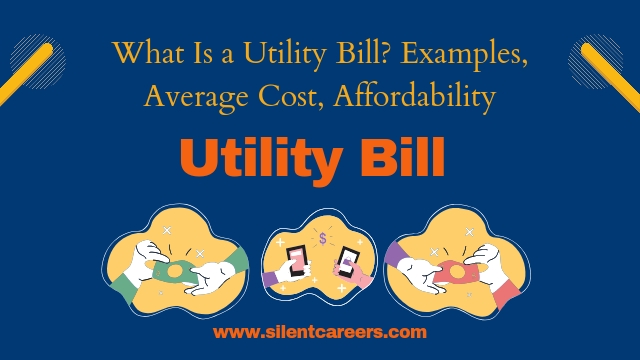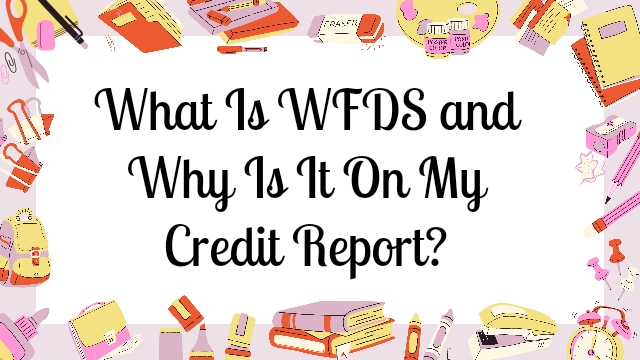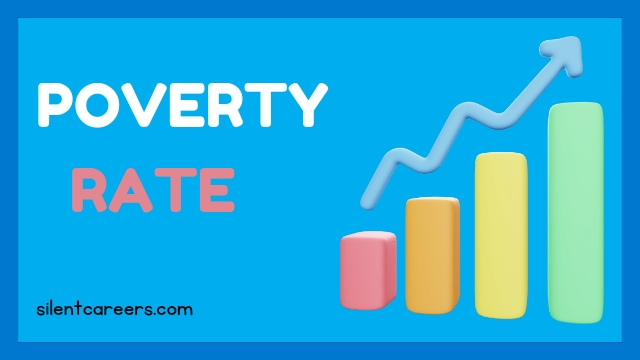
CBE Group is a debt collection agency that works on behalf of various creditors to collect overdue debts. They handle collections for financial institutions, healthcare providers, utility companies, and government agencies. If you’re receiving calls from CBE Group, it’s likely related to an unpaid debt that they are tasked with recovering.

What is CBE Group?
The CBE Group, formally known as CBE Companies, is a prominent debt collection agency based in the United States. Founded in 1933, CBE Group specializes in accounts receivable management (ARM) and provides a wide range of services including debt collection, customer care, and business process outsourcing (BPO).
Core Functions and Services:
- Debt Collection: The CBE Group primarily focuses on collecting overdue debts on behalf of various clients, including financial institutions, healthcare providers, utility companies, and government agencies. Their role is to recover funds that are past due while ensuring compliance with legal and regulatory standards, such as the Fair Debt Collection Practices Act (FDCPA).
- Business Process Outsourcing (BPO): Beyond debt collection, CBE offers BPO services, which include customer support, back-office operations, and other functions that companies may choose to outsource. This enables businesses to focus on their core activities while CBE handles the operational aspects efficiently.
- Compliance and Data Security: CBE Group places a strong emphasis on compliance with federal and state regulations, as well as maintaining stringent data security measures. Given the sensitive nature of the information they handle, they prioritize safeguarding customer data through advanced security protocols.
Strategic Approach:
CBE Group employs sophisticated data analytics and customer behavior insights to tailor its collection strategies. By leveraging predictive analytics, they can optimize their approach to maximize recovery rates while maintaining a positive customer experience.
Their approach is typically multi-faceted, involving phone calls, letters, and digital communication channels to engage with debtors and facilitate repayment in a manner that is both effective and respectful.
Industry Position and Reputation:
CBE Group has established itself as a leader in the debt collection industry, known for its ethical practices and commitment to compliance. However, as with any collection agency, it is subject to scrutiny and consumer complaints, often related to the nature of the debt collection process itself.
The company’s long-standing presence in the industry, coupled with its ongoing investment in technology and compliance, positions it as a key player in the accounts receivable management sector.
The CBE Group is a comprehensive service provider in the debt collection and BPO industry, balancing aggressive debt recovery strategies with a strong commitment to legal and ethical standards. Their expertise in managing sensitive financial data and maintaining compliance makes them a crucial partner for businesses seeking to recover overdue payments efficiently.
Why is cbe group calling me?
If the CBE Group is calling you, it is likely because they are attempting to collect a debt that you owe. CBE Group is a debt collection agency that works on behalf of various creditors, including financial institutions, healthcare providers, utility companies, and government agencies. When you receive a call from them, it usually means that you have an outstanding balance with one of these entities, and CBE Group has been hired to recover the debt.
Possible Reasons for Their Call:
- Unpaid Bills or Loans: You may have an overdue bill, such as a credit card balance, medical bill, student loan, utility bill, or another type of loan that has gone unpaid. The original creditor may have assigned or sold the debt to CBE Group for collection.
- Verification or Information: They might be contacting you to verify your identity, address, or other information related to the debt.
- Payment Arrangement: CBE Group may be calling to discuss payment options, negotiate a settlement, or set up a payment plan to help you resolve the debt.
- Notification of Legal Action: In some cases, if the debt remains unpaid for an extended period, the agency may be contacting you to inform you of potential legal actions that could be taken if the debt is not resolved.
What Should You Do?
- Verify the Debt: Before taking any action, ask CBE Group for details about the debt, including the original creditor, the amount owed, and any supporting documentation. You have the right to request this information under the Fair Debt Collection Practices Act (FDCPA).
- Check for Errors: Mistakes can happen. Ensure that the debt is actually yours and that the amount is correct. If you believe the debt is not yours or there is an error, you can dispute it.
- Know Your Rights: Familiarize yourself with your rights under the FDCPA. Debt collectors must follow specific rules when contacting you, such as not calling at unreasonable hours, using harassment, or making false statements.
- Consider Your Options: If the debt is valid, you may want to discuss payment options with CBE Group. If you are unable to pay the full amount, they may be willing to negotiate a lower settlement or set up a payment plan.
- Seek Legal Advice: If you’re unsure about how to handle the situation, consider seeking advice from a financial advisor or attorney, especially if the debt is substantial or if you believe you are being unfairly targeted.
Receiving a call from the CBE Group typically means they are attempting to collect a debt. It’s important to verify the legitimacy of the debt, understand your rights, and consider your options carefully before proceeding.
Is CBE Group Legit?
Yes, CBE Group is a legitimate debt collection agency. Founded in 1933, CBE Group (also known as CBE Companies) is based in the United States and provides debt collection and accounts receivable management services for various types of creditors, including financial institutions, healthcare providers, utility companies, and government agencies.
Why CBE Group is Legitimate:
- Established History: CBE Group has been in operation for several decades, which is a strong indicator of its legitimacy and reliability in the debt collection industry.
- Industry Recognition: CBE Group is a recognized entity in the debt collection industry and works with a wide range of clients, including major companies and government organizations.
- Compliance: As a legitimate debt collection agency, CBE Group operates under strict regulations, including the Fair Debt Collection Practices Act (FDCPA). This federal law governs how debt collectors can interact with consumers and ensures that they adhere to ethical practices.
- Better Business Bureau (BBB) Accreditation: CBE Group is accredited by the Better Business Bureau (BBB) and has a profile where consumers can view its rating, history of complaints, and resolution efforts.
Verifying Legitimacy:
If you receive a communication from CBE Group and want to verify its legitimacy:
- Ask for Details: Request specific information about the debt, including the original creditor, the amount owed, and any supporting documentation. Legitimate debt collectors should be able to provide this information.
- Check Contact Information: Verify that the contact details match those listed on CBE Group’s official website or other reputable sources.
- Review Your Records: Compare the information provided by CBE Group with your own financial records to confirm that the debt is valid.
- Look for Red Flags: Be cautious of any debt collector that refuses to provide information, pressures you to pay immediately without verification, or asks for payment through unconventional methods (such as gift cards or wire transfers).
CBE Group is a legitimate debt collection agency with a long history and adherence to industry regulations. If they contact you, it is important to verify the debt and ensure that all interactions are conducted according to your rights under the law.
Will CBE Group sue or garnish your wages?
The CBE Group, like other debt collection agencies, has the ability to take legal action to collect on a debt, but this typically happens only after other collection efforts have been exhausted. If CBE Group is unable to collect a debt through traditional means, they may consider suing you to recover the amount owed.
Here’s what you should know about the potential for a lawsuit or wage garnishment:
1. Filing a Lawsuit:
- Legal Action: If you owe a debt and do not make arrangements to pay it, CBE Group might file a lawsuit against you on behalf of the original creditor. This usually happens after they have tried other methods of collection, such as phone calls, letters, and negotiations.
- Court Judgment: If CBE Group files a lawsuit and wins, the court will issue a judgment against you, which legally confirms that you owe the debt. This judgment may include the amount owed, plus additional costs like interest, legal fees, and court costs.
2. Wage Garnishment:
- Post-Judgment Garnishment: If CBE Group obtains a court judgment against you, they may seek to enforce it by garnishing your wages. Wage garnishment means that a portion of your paycheck is automatically deducted to pay off the debt.
- Garnishment Process: To garnish your wages, CBE Group would need to obtain a court order. Your employer would then be required to withhold a specific portion of your wages and send it directly to CBE Group until the debt is paid off.
3. State Laws and Limits:
- Varies by State: The rules and limits for wage garnishment vary by state. Some states protect a portion of your income, ensuring that only a certain percentage of your wages can be garnished. Federal law generally limits garnishment to 25% of your disposable earnings or the amount by which your weekly income exceeds 30 times the federal minimum wage, whichever is less.
- Exemptions: Certain types of income, such as Social Security benefits and disability payments, are typically exempt from garnishment.
4. Before Legal Action:
- Communication: CBE Group usually tries to resolve the debt before resorting to legal action. They may offer payment plans, settlements, or other arrangements to help you pay off the debt.
- Responding to a Lawsuit: If you receive a lawsuit notice, it’s crucial to respond within the time frame specified. Ignoring the lawsuit can lead to a default judgment against you, making it easier for CBE Group to garnish your wages or take other collection actions.
What to Do if You’re Facing a Lawsuit or Garnishment:
- Seek Legal Advice: If you’re sued or if wage garnishment is a possibility, consider consulting with a lawyer who specializes in debt collection issues. They can help you understand your rights and options.
- Negotiate: Sometimes, you can negotiate with CBE Group to settle the debt for less than the full amount or to set up a payment plan, which might prevent legal action.
- Attend Court Hearings: If you are sued, make sure to attend all court hearings. Presenting your side can sometimes result in a more favorable outcome.
CBE Group can sue and potentially garnish your wages, but this usually happens only after other efforts to collect the debt have failed. If you’re contacted by CBE Group regarding a debt, it’s important to take the situation seriously, communicate with them, and explore options to resolve the debt before it escalates to legal action.
Who does CBE Group collect for?
CBE Group collects debts on behalf of a wide range of clients across various industries. These clients typically include:
1. Financial Institutions:
- Banks and Credit Unions: CBE Group collects overdue credit card balances, personal loans, auto loans, and other forms of consumer debt for banks and credit unions.
- Mortgage Lenders: They may also be involved in collecting delinquent mortgage payments or home equity loans.
2. Healthcare Providers:
- Hospitals and Clinics: CBE Group often works with healthcare providers to collect unpaid medical bills, including costs associated with hospital stays, surgeries, and other treatments.
- Medical Equipment Suppliers: They may also collect for companies that provide medical equipment or services.
3. Utility Companies:
- Electricity, Gas, and Water Providers: CBE Group collects overdue utility bills, including electricity, gas, water, and sewage services.
- Telecommunications: They may also collect unpaid bills for cable, internet, and phone services.
4. Government Agencies:
- Federal, State, and Local Governments: CBE Group works with government agencies to collect various types of debt, such as unpaid taxes, fines, student loans, and overpayments of government benefits.
- Student Loan Servicers: They are particularly active in collecting defaulted federal student loans on behalf of the U.S. Department of Education.
5. Educational Institutions:
- Colleges and Universities: CBE Group may collect overdue tuition fees, student loans, and other educational expenses on behalf of higher education institutions.
6. Commercial Businesses:
- Retailers: CBE Group collects unpaid balances for goods and services purchased on credit from various retail businesses.
- Service Providers: They may also collect for businesses that offer subscription services, memberships, or other recurring billing arrangements.
7. Telecommunications Companies:
- Phone and Internet Providers: CBE Group often collects overdue bills for phone services, internet services, and other related services.
8. Insurance Companies:
- Health and Auto Insurance: They may collect premiums or recover overpayments made to policyholders.
9. Student Loan Servicers:
- Federal and Private Loans: CBE Group collects delinquent federal and private student loans, often working with the U.S. Department of Education or private lenders.
CBE Group serves a broad spectrum of industries, collecting debts on behalf of financial institutions, healthcare providers, government agencies, utilities, and more. If you are contacted by CBE Group, it is likely in connection with an unpaid debt owed to one of these types of clients.
How to remove CBE Group debt from your credit report
Removing a CBE Group debt from your credit report can be challenging, but it is possible if you follow the appropriate steps. Here’s how you can try to remove a collection account from your credit report:
1. Verify the Debt:
- Request Validation: If you believe the debt is incorrect or if you’re not sure it belongs to you, the first step is to request debt validation from CBE Group. Under the Fair Debt Collection Practices Act (FDCPA), you have the right to request validation within 30 days of being contacted. CBE Group must provide documentation that proves the debt is yours and that they have the right to collect it.
- Check for Errors: Review your credit report for any inaccuracies related to the CBE Group account, such as incorrect account numbers, wrong amounts, or reporting errors. If you find any discrepancies, you can dispute them with the credit bureaus.
2. Dispute the Debt with Credit Bureaus:
- File a Dispute: If you find inaccuracies, you can dispute the debt with the major credit bureaus (Experian, Equifax, and TransUnion). You can file a dispute online, by mail, or by phone. The credit bureaus are required to investigate your dispute and correct any errors within 30 days.
- Provide Evidence: When disputing, provide any supporting documentation that shows the debt is inaccurate or that you’ve already paid it.
3. Negotiate a Pay-for-Delete Agreement:
- Contact CBE Group: Reach out to CBE Group and propose a “pay-for-delete” agreement. This is a negotiation where you agree to pay the debt (in full or a negotiated amount) in exchange for CBE Group agreeing to remove the negative entry from your credit report.
- Get It in Writing: If CBE Group agrees to the pay-for-delete arrangement, make sure to get the agreement in writing before making any payment. This written agreement is your proof if the entry is not removed after you pay.
4. Settle the Debt:
- Pay the Debt: If you can’t get a pay-for-delete agreement, paying off the debt can still help. Once the debt is paid, the account will be marked as “Paid” or “Settled” on your credit report, which is better than having an unpaid collection. It won’t remove the entry, but it can improve your credit over time.
- Request a Goodwill Deletion: After paying off the debt, you can send a goodwill letter to CBE Group, asking them to remove the collection account from your credit report as a gesture of goodwill. This approach often works if you have a good payment history otherwise and can explain the circumstances that led to the delinquency.
5. Wait for the Debt to Age Off:
- Time-Based Removal: If the debt is valid and you’re unable to get it removed through the above methods, you may have to wait for the debt to age off your credit report. Most negative information, including collections, stays on your credit report for seven years from the date of the first delinquency.
6. Seek Professional Help:
- Credit Repair Companies: If you’re struggling to remove the debt from your credit report on your own, you might consider working with a credit repair company. These companies specialize in disputing inaccurate or outdated information on credit reports, although they charge for their services.
Removing a CBE Group debt from your credit report involves verifying the debt, disputing inaccuracies, negotiating a pay-for-delete agreement, or requesting a goodwill deletion after payment. While it can be challenging, especially if the debt is valid, these steps can help improve your credit report over time.
Read more: How to Remove Capio Partners from Your Credit Report
Do I Have To Pay CBE Group?
You are legally obligated to pay CBE Group if they have valid proof that you owe the debt. Before paying, verify the debt to ensure it’s accurate and belongs to you. If the debt is valid, you can negotiate payment terms or explore settlement options. Ignoring the debt could lead to legal action or negative impacts on your credit score.
Who does CBE Group stand for?
CBE Group stands for a debt collection agency that works on behalf of various creditors, including banks, healthcare providers, government agencies, and utility companies. They are responsible for collecting unpaid debts from consumers on behalf of these organizations. CBE Group contacts individuals to recover overdue payments, negotiate settlements, or set up payment plans.
The C B E Group Inc
The CBE Group Inc. is a well-established debt collection agency that provides accounts receivable management services. Founded in 1933, the company works on behalf of a variety of clients, including financial institutions, healthcare providers, utility companies, and government agencies, to recover unpaid debts. CBE Group’s operations include contacting consumers, negotiating payment plans, and ensuring compliance with legal and regulatory standards in the debt collection process.
Cbe group collection agency
CBE Group is a reputable collection agency that specializes in recovering unpaid debts on behalf of various clients, including banks, healthcare providers, utility companies, and government agencies.
Established in 1933, the company uses a range of methods, such as phone calls, letters, and negotiations, to collect overdue payments from consumers. CBE Group is also known for adhering to legal and regulatory standards, such as the Fair Debt Collection Practices Act (FDCPA), to ensure that the debt collection process is conducted ethically and legally.
Complaints against CBE Group
Complaints against CBE Group, like those against many debt collection agencies, typically revolve around the following issues:
**1. Harassment or Aggressive Tactics:
- Excessive Contact: Some consumers report that CBE Group contacts them too frequently or at inconvenient times, which can be perceived as harassment.
- Threats or Intimidation: Complaints may include allegations of CBE Group using threatening language or making exaggerated claims about legal consequences.
**2. Errors or Inaccuracies:
- Incorrect Debt Information: Consumers sometimes complain about inaccuracies in the debt amount or incorrect information related to the debt, such as wrong account numbers or balances.
- Unverified Debts: Some complaints involve CBE Group attempting to collect on debts that the consumer disputes or that are not verified as owed.
**3. Failure to Validate Debt:
- Debt Validation Requests: Under the Fair Debt Collection Practices Act (FDCPA), consumers can request validation of a debt. Complaints may arise if CBE Group fails to provide the necessary documentation to validate the debt when requested.
**4. Improper Reporting to Credit Bureaus:
- Inaccurate Credit Reporting: Complaints can include issues where CBE Group reports inaccurate information to credit bureaus, which can negatively impact a consumer’s credit score.
- Failure to Update Information: There are also complaints about CBE Group not updating credit reports to reflect settled or paid debts accurately.
**5. Violation of FDCPA Regulations:
- Unlawful Practices: Some consumers report that CBE Group may violate FDCPA regulations by using deceptive practices, failing to provide required disclosures, or contacting consumers inappropriately.
**6. Customer Service Issues:
- Unresponsive or Unhelpful: Complaints can involve difficulties in reaching a representative or receiving insufficient assistance when attempting to resolve debt issues.
Addressing Complaints:
- File a Complaint: Consumers who have issues with CBE Group can file a complaint with the Consumer Financial Protection Bureau (CFPB), their state’s attorney general, or the Better Business Bureau (BBB).
- Request Validation: If you believe there are inaccuracies or issues with the debt, request validation and document all communications with CBE Group.
- Seek Legal Advice: If you believe your rights under the FDCPA have been violated, consulting with a lawyer who specializes in debt collection issues can provide guidance on potential legal remedies.
While CBE Group is a legitimate debt collection agency, like many such organizations, it may face complaints related to aggressive collection tactics, inaccuracies, and regulatory violations. Addressing these complaints often involves documenting issues, seeking validation, and filing formal complaints with relevant agencies.
How To Deal With CBE Group
Dealing with CBE Group or any debt collection agency involves several steps to ensure that you handle the situation effectively and protect your rights. Here’s how to navigate interactions with CBE Group:
**1. Verify the Debt:
- Request Validation: Within 30 days of first being contacted, request validation of the debt. CBE Group must provide documentation proving that the debt is valid, that you owe it, and that they have the right to collect it.
- Review Details: Ensure the debt details match your records. If there are errors or discrepancies, address them promptly.
**2. Understand Your Rights:
- Fair Debt Collection Practices Act (FDCPA): Familiarize yourself with your rights under the FDCPA. This law regulates how debt collectors can interact with you, including prohibitions on harassment, threats, and misleading statements.
- No Harassment: CBE Group should not contact you excessively, use threatening language, or discuss your debt with third parties without your consent.
**3. Communicate in Writing:
- Document Everything: Keep written records of all communications with CBE Group. This includes letters, emails, and details of phone conversations.
- Written Requests: Send written requests for debt validation, disputes, or settlements. Always use certified mail with a return receipt to confirm that CBE Group received your communication.
**4. Negotiate Payment Terms:
- Discuss Options: If the debt is valid and you are able to pay, negotiate payment terms with CBE Group. You might be able to set up a payment plan or negotiate a settlement for less than the full amount owed.
- Get Agreements in Writing: Ensure any agreements or arrangements are documented in writing before making payments.
**5. Dispute Inaccuracies:
- Credit Report Disputes: If you find inaccuracies on your credit report related to CBE Group’s collection, file a dispute with the major credit bureaus (Experian, Equifax, TransUnion). Provide evidence of any errors or discrepancies.
- Request Corrections: If CBE Group provides incorrect information, ask them to correct it and update your credit report accordingly.
**6. Consider Legal Help:
- Consult an Attorney: If you believe CBE Group has violated your rights or if you face legal action, consult with a lawyer who specializes in debt collection issues. They can provide guidance on how to proceed and represent you in legal matters if necessary.
**7. Seek Financial Counseling:
- Credit Counseling: If you’re struggling with debt, consider speaking with a credit counselor. They can help you understand your options and develop a plan to manage your debts more effectively.
**8. File Complaints if Necessary:
- Regulatory Agencies: If you experience unfair practices or violations, file a complaint with the Consumer Financial Protection Bureau (CFPB), your state’s attorney general, or the Better Business Bureau (BBB).
- Consumer Protection: Complaints can help resolve issues and potentially lead to better practices by the debt collector.
**9. Know When to Ignore:
- Abusive Practices: If CBE Group engages in abusive or illegal practices, you may have the option to cease communication under FDCPA provisions. However, this can lead to legal action, so it’s important to weigh the decision carefully and seek legal advice.
Dealing with CBE Group effectively involves verifying the debt, understanding your rights, communicating in writing, negotiating terms, disputing inaccuracies, and seeking professional help when needed. By following these steps, you can manage the situation more effectively and protect your financial and legal interests.
Why does CBE Group keep calling me?
If CBE Group keeps calling you, it is likely because they are attempting to collect an unpaid debt. Here are some common reasons why they might persist in their calls:
**1. Outstanding Debt:
- Unpaid Bills: CBE Group is likely trying to collect a debt that you owe, such as a credit card balance, medical bill, utility bill, or other types of overdue payments.
- Account Status: If the debt is not paid or resolved, they may continue to call in an effort to recover the amount owed.
**2. Failed Payment Arrangements:
- Missed Payments: If you had previously agreed to a payment plan but missed payments, CBE Group might call to remind you of your obligation and seek payment.
**3. Debt Verification:
- Confirmation: They may be trying to confirm your contact information, verify your identity, or update records related to the debt.
**4. Negotiation Attempts:
- Settlement Offers: CBE Group might be calling to discuss potential settlement options, negotiate payment terms, or offer alternative solutions for resolving the debt.
**5. Legal Action:
- Pre-Legal Notice: In some cases, persistent calls may be an attempt to notify you of potential legal action or to discuss the possibility of a lawsuit if the debt remains unresolved.
**6. Collection Strategies:
- Automated Calls: Sometimes, collection agencies use automated calling systems that may continue to contact you until the debt is addressed or payment is made.
- Escalation: If previous attempts to contact you were unsuccessful, the agency may escalate their efforts to ensure they reach you.
Steps to Take:
- Verify the Debt: Request written validation of the debt from CBE Group. This should include details about the original creditor, the amount owed, and proof that they have the right to collect the debt.
- Review Your Records: Compare the information provided by CBE Group with your own financial records to ensure the debt is accurate and legitimately owed.
- Communicate in Writing: Send a written request to CBE Group for more information or to address any concerns you have. Keep records of all correspondence.
- Negotiate Payment: If the debt is valid, consider negotiating payment terms or a settlement to resolve the issue.
- Seek Legal Advice: If you believe the calls are in violation of your rights or if you’re unsure how to handle the situation, consult with a lawyer who specializes in debt collection issues.
- File a Complaint: If CBE Group’s calls are harassing or abusive, you can file a complaint with the Consumer Financial Protection Bureau (CFPB), your state’s attorney general, or the Better Business Bureau (BBB).
Conclusion:
Persistent calls from CBE Group usually indicate they are trying to collect an outstanding debt. To address the situation, verify the debt, communicate in writing, negotiate if possible, and seek legal advice if needed.








